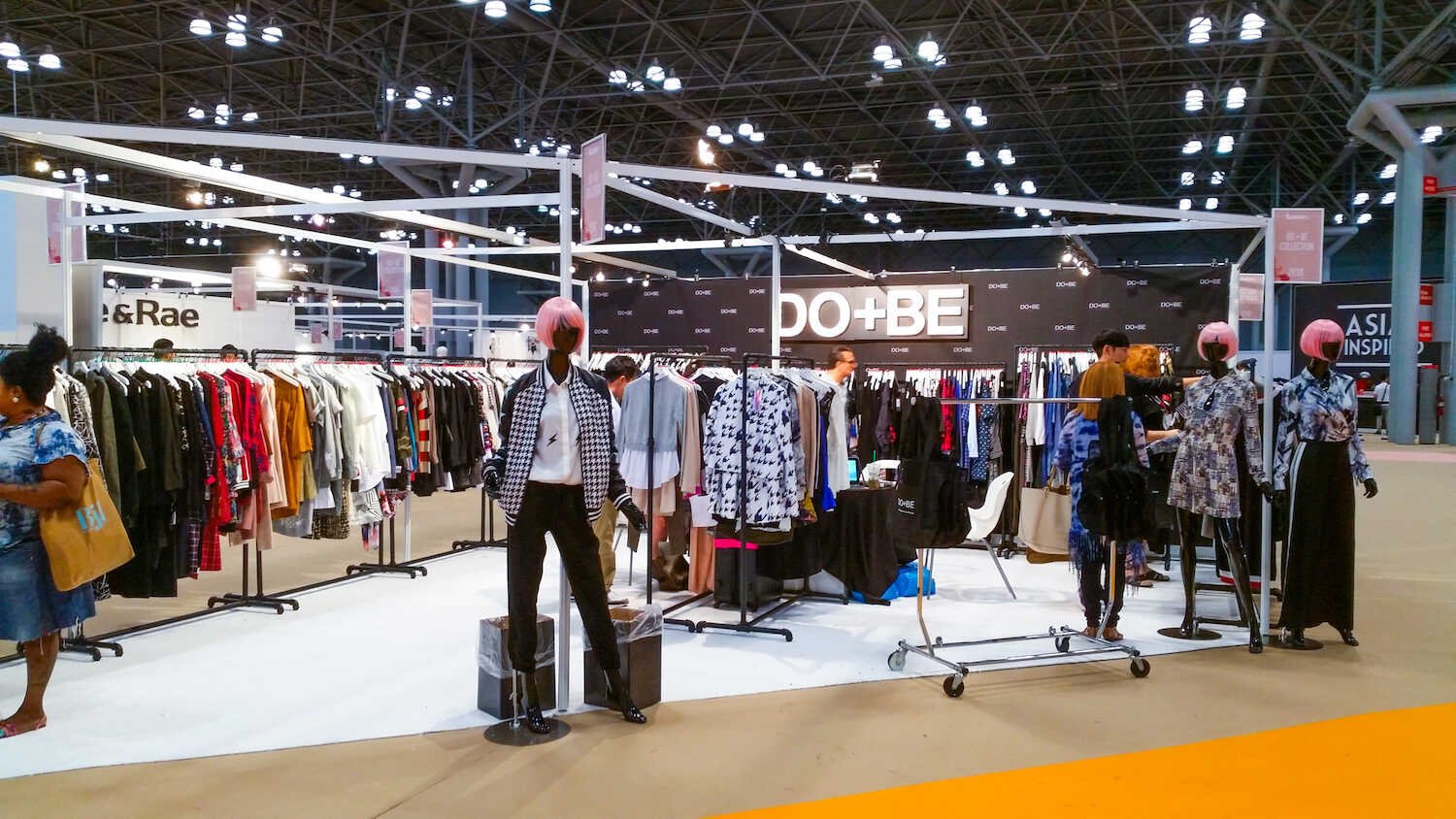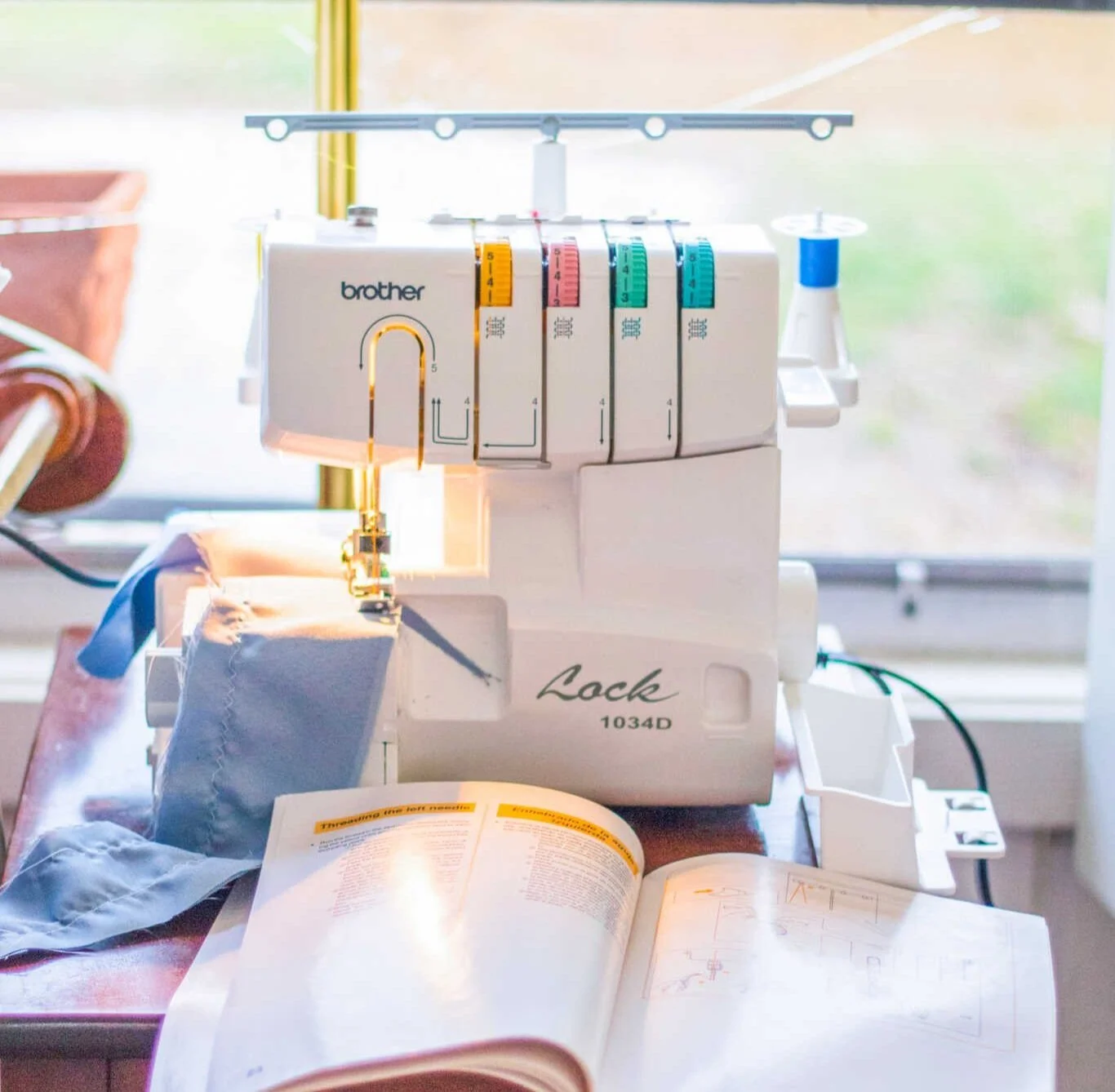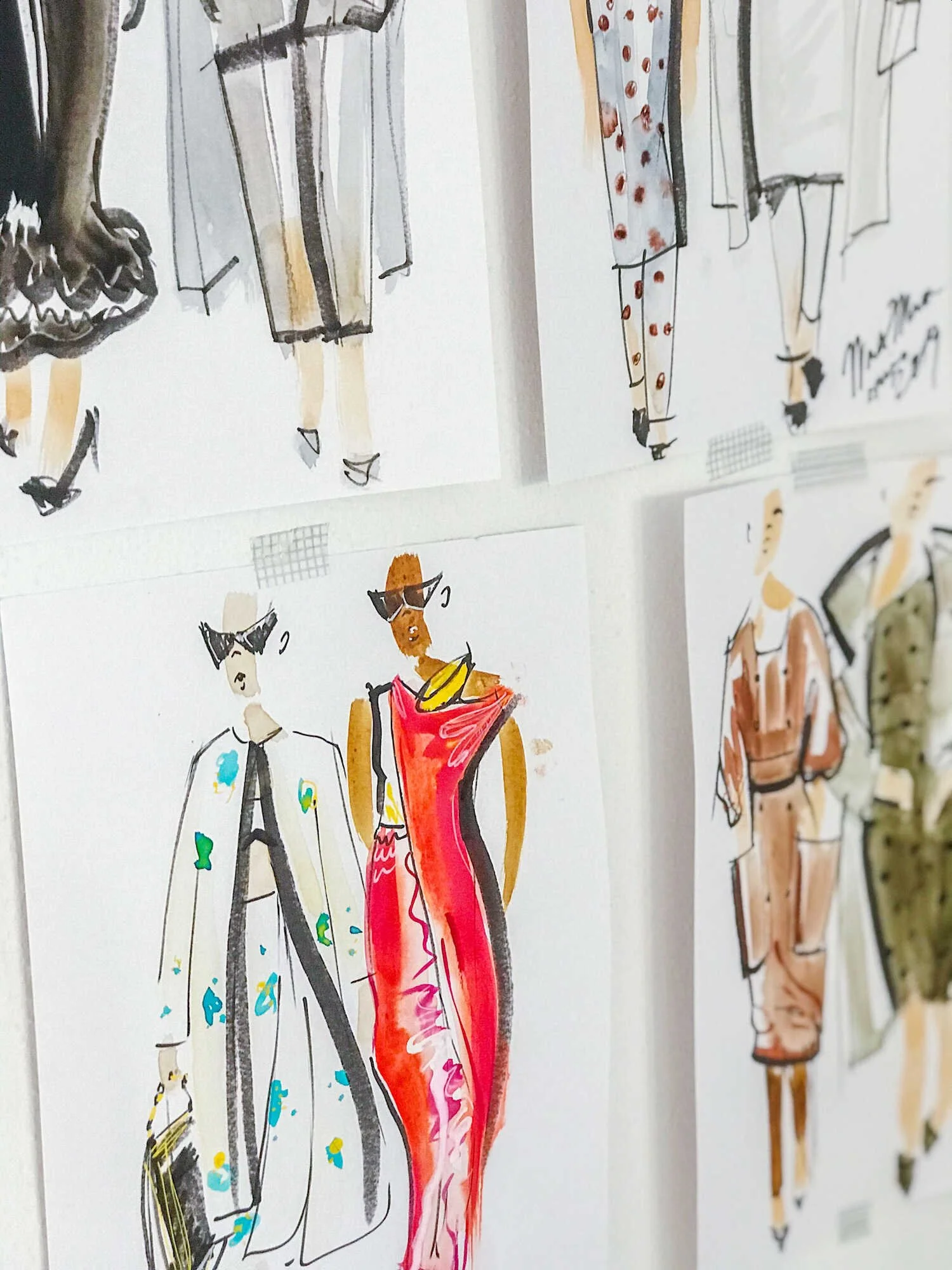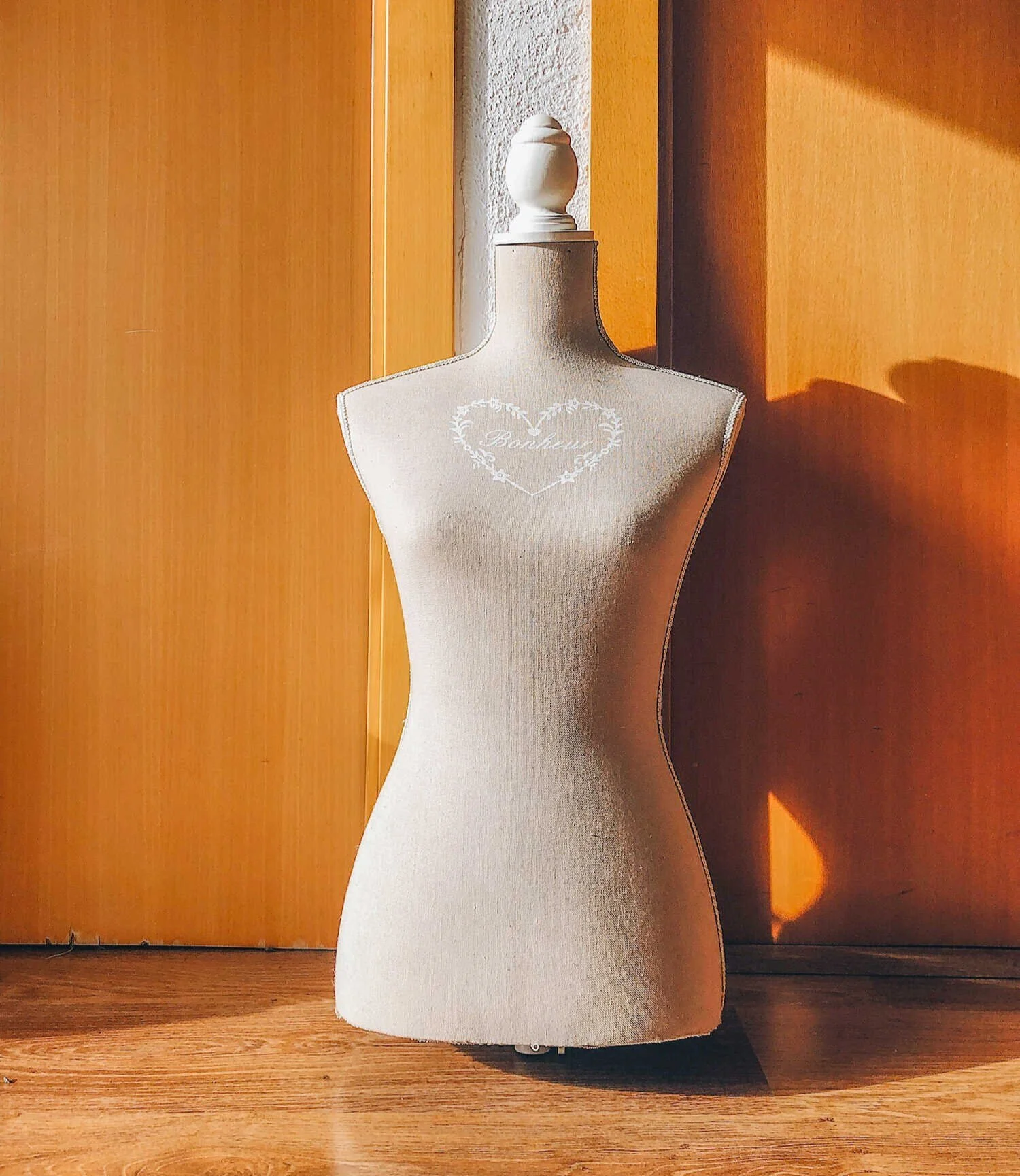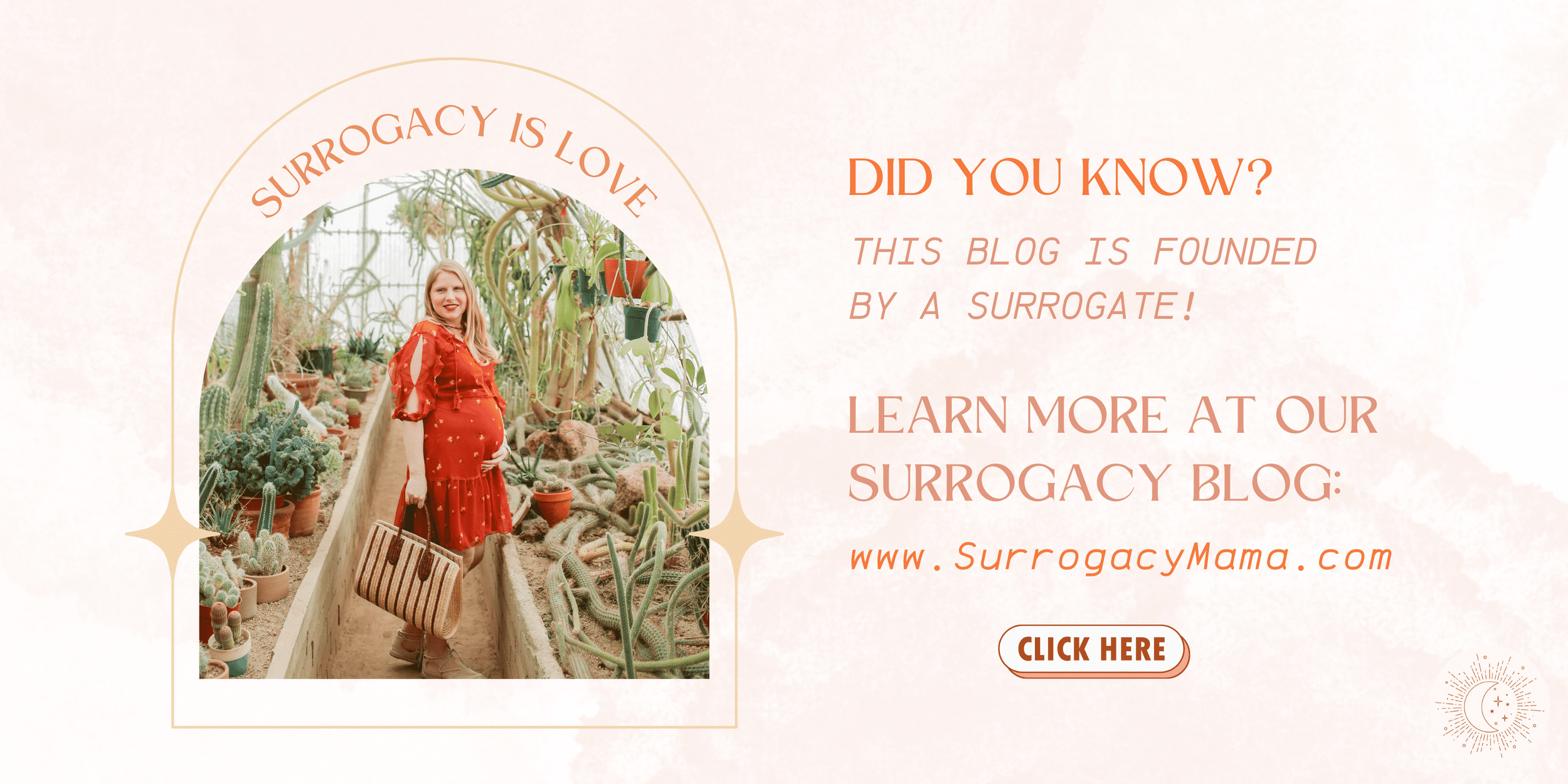What Can You Do with a Fashion Merchandising Degree? - A Fashion Student's Roadmap to a Career in the Industry
My interest in fashion began at an early age and I knew that I wanted to somehow work in the industry. Figuring out exactly how to get there took a few years of paying my dues, plus some trial and error.
While there’s no one path to a successful career in the fashion industry, there’s definitely many common threads that up and comers will experience. And quite frankly, I think anyone interested in this field should learn early on the significant obstacles to gaining traction in this extremely competitive field.
In this guide to entering the fashion industry workforce, I will go into details about school coursework, fashion internships, entry-level fashion jobs to gain experience, and more helpful insider information.
Going to School to Pursue a Degree in Fashion Merchandising
When looking into your fashion school institution options, you can expect your education to extend much beyond the basics of sewing with a needle. Sure, you'll master the fundamentals like design, pattern making, and sewing, but you can consider remote jobs for students and anticipate developing a skill set that spans much beyond just designing and sewing.
Below you can find the most common areas of study that you need to master as a student in fashion school. Be aware that there’s a lot of crossover and you’ll most likely be taking electives that fall into various categories.
Fashion Design
A Fashion Design program helps students create a foundation in color theory, design history, worldwide trends, and basic drawing. It usually involves courses in design, basic sketching and illustration, patterns sewing, draping, garment manufacturing, and more to hone your talents and expand your horizons. Classrooms typically serve as a practical workshop where students design clothes, cut patterns, collect materials, and assemble model outfits for their own brand.
For those who aspire to have their own clothing label, a degree in Fashion Design is typically what you would pursue. Another career in keeping with design is working on a team for a larger design house. All major fashion brands have in-house designers working on their seasonal fashion lines. You will need to focus on the nitty gritty fundamentals of sewing and garment production to be able to create functional garments.
Some of the job titles you can pursue with a Fashion Design degree are pattern maker, tech pack designer, product developer and even a costume designer for films (most of them get their start as costume makers).
Fashion Merchandising and Buying
The Fashion Merchandising and Buying is typically a commerce minded program designed to train a driven professional for a career in the elusive art of buying and selling fashion for department stores. It teaches how to know what clients want even before they do, have a thorough understanding of current market changes, and possess excellent forecasting skills.
In simple terms, one learns about the business side of the fashion industry. The program covers various facets of retail, advertising, and pricing. Hence, students with an enterprising outlook will be successful in this fashion niche.
Some of the jobs you can do with the Fashion Merchandising and Buying are fashion trend analyst, fashion buyer, salesperson, merchandise coordinator, fashion advertising copywriter, fashion editor, visual merchandiser, fashion event coordinator, department manager, fashion consultant, and fashion show producer or director.
Fabric and Textile Production
This program focuses on the creation of textiles using traditional handcraft methods as well as cutting-edge digital techniques for printing, knitting, embroidery, and decoration. You will deepen your understanding of textiles, color, and silhouettes. You will also assess fabrics, carry out fabric quality experiments, and learn about eco-friendly fashion awareness, trend prediction, illustration, pattern-cutting, and garment manufacturing.
A person working in textile production can expect to spend a lot of time traveling to mills in foreign countries, meeting with vendor reps and looking at fabric swatches. You will also most likely be looking to source raw materials from sustainable sources, especially as the world grows more aware of the impact of fashion on the environment.
Fashion Styling
Fashion Styling is the practice of conceptualizing and developing a collection of clothes to convey a certain concept and aesthetic. Students who complete this program are fully prepared to style, create, and design content for print and online fashion magazines, advertising campaigns, commercials, e-commerce, look books, and fashion shows.
There’s a certain glamorous aura around the profession of fashion styling. Most stylists have developed a strong sense of personal style and use their own lifestyle as personal branding to attract clients. Secondly, many stylists work closely with celebrities and high profile individuals to help with dressing for public occasions. Stylists use carefully curated fashion pieces to elevate the profile of many public figures. And finally, stylists are always forward thinkers when it comes to fashion. They are pushing the envelop and often become the creators of mass fashion trends.
Fashion Bloggers and Content Creators
The newest growing trend in the fashion industry is the incomparable fashion blogger, Instagrammer and Tik Tok Creator. The power of these influential personalities can no longer be ignored, as often times they are the ones leading and creating the fashion trends and narratives.
An evolution past stylist, the fashion blogger is sharing their own personal style and providing fashion inspiration for the masses through social media channels and blogs. Their content often includes outfit inspiration, highlighting trends and promoting their favorite brands.
In the current fashion world climate, it is not uncommon to see social media influencers as paid brand ambassadors for clothing lines, and promoting sponsored content on their own social media channels. As a fashion professional, you can either be the influencer yourself, or be on the other side, working directly with influencers to promote brand campaigns.
Fashion Journalism and Publishers
By the time you graduate from a fashion journalism program, you should have the information and skills you need to work in the dynamic and fascinating media and fashion sectors. The courses integrate fundamental fashion education with journalistic principles, while also addressing contemporary communication practices, technology, and cultural challenges.
In anecdotal terms, this is more along the lines of hard hitting and investigative journalism surrounding the fashion industry. There’s always plenty of scandal, misconduct and exploitative wrongdoings to be uncovered and exposed. The fashion industry is always changing and evolving, but not without some skeletons in the closets of major players in the business. It takes keen journalistic skills to tell these stories and evoke positive changes.
Fashion Communications, Promotions, PR and Marketing
The core concepts of communication strategy are the focus of this program. Students examine the connections between a company, a product, and a market. They also explore the function that communication and marketing strategies have in the world of fashion. Students learn to spot and analyze broader societal and cultural shifts, and then use that information to shape public dialogue on issues like equality, race, consumerism, and health.
Fashion Show Production
This program explores both established and cutting-edge fashion presentation techniques. Its courses discuss show direction and format possibilities as well as talent finding and budget management. Students are taught about the purpose of fashion shows in brand PR as well as the variety of pre- and post-show actions businesses engage in.
When looking into Fashion Show Production as a career, be aware that this coursework is usually a focus within the broader Fashion Merchandising degree. At my school, all fashion students were required to participate in the annual school fashion shows.
What to Expect While Attending Fashion School
If you are going to become a full-time student at a fashion school, there are some things you should expect. No matter what school you ultimately attend, there are some universal practices and expectations amongst most educational fashion institutions.
As you read on you’ll see the range and scope of your studies will be quite diverse, yet exciting!
Working on Sewing Projects
As a fashion student, you will most likely need to learn at least the basics of sewing. For Fashion Merchandising majors, the sewing classes may be electives that you can choose from. These fundamental skills will help you understand all the nuances of garment production, which plays a vital role in costing and buying.
For some degrees you will learn advanced sewing skills, such as a major in Fashion Design. In some fashion jobs you need to be able to create a garment from start to finish, which takes a wide variety of complex sewing skills.
Participating in Annual Project Showcase and Fashion Show
Much of the curriculum and coursework in fashion school is project based. During your years in school, you’re actively building out a portfolio which serves as a resume for internships and entry-level fashion jobs.
At the end of the semester there’s often a school-wide fashion show to display the hard work from the students. Being that it is a fashion school, fashion shows are the best way to showcase the projects from the semester. There’s usually a class designated to put on the show, and they’re also the ones who come up with the themes.
At my own school, our fashion shows were very “artsy and avant garde.” Meaning they were not high fashion at all, but rather experimental and allowing for creative expression. We often did “Upcycled Fashion Shows” where we repurposed either old clothing or used untraditional raw materials to make clothing. One year I did an upcycled wedding dress where I used ombre dye techniques to make a white dress into colorful hues of red, orange and pink. Scroll down to see photos from my upcycled fashion show project.
Hands-On Learning with Field Trips
Every semester our classes would hit the road and meet off-campus for hands-on learning. Depending on the specifics of the class, we could meet at fashion industry common places such as factories, retail stores and design studios.
When you’re working professionally in a fashion role, often you are not just sitting at your desk in front of a computer. Having these real-world experiences while still remaining under the security of a learning environment can be incredibly helpful.
My advice is to sign up and volunteer for as many of these types of field trips as possible. This way you can really get a better understanding of the real life work process, which can help you make pivotal career choices when the time comes to get a job.
Write Fashion Trend Reports for Upcoming Seasons
For myself, one of my favorite things to do in the fashion world is look ahead at what is coming next. Trend forecasting is a vital part of the fashion industry, because it creates guidelines for buyers who make critical financial decisions regarding buying inventory. Accurate forecasting can make or break your season’s sales, either putting you in the profitable green or the negative red.
When it comes to fashion trend forecasting, you need to consider many different cultural aspects that drive purchasing decisions. Things like pop culture icons, lifestyle choices, social media trends and street style often inspire the masses to buy new clothing for an upcoming season or special occasion.
Trend forecasters are looking at specific details such as silhouettes, colors, patterns, fabrics, prints and textures that influence the style of garments and accessories. They will use a combination of collected data, observation and intuition to build industry trend reports which serve as seasonal guides to buyers and designers.
As a student in fashion school, you will be building trend reports as part of your curriculum. One of my favorite things to do was to use Pantone’s Color of the Year predictions as part of my forecasts. Every year Pantone comes up with a color and accompanying palette that they believe will dominate in not only the fashion industry, but also interior design. This is one of the real-life tools trend forecasters use to guide their predictions.
Writing Fashion Research Papers
Did you sign-up for fashion school to avoid having to write lengthy research papers? Well the jokes on you, because you will still have to flex those literary muscles as a fashion student.
Most fashion students are required to take a history of fashion course that goes into details on the timelines and cultural significance of fashion trends. So you can expect a fashion history essay at some point in your studies.
I also recall writing multiple research papers on the environmental impact of the fashion industry. From denim dyes polluting rivers, to landfills filling up with fast fashion discards, be prepared to dig into the realities of the fashion industry. You will then be expected to analyze and form informed opinions which you will then prose into composition papers.
If you are more of the creator type and less the studious scholar, I suggest using a rate my paper service which can help you improve your writing skills and give both positive and constructive feedback. These professional skills will also surely help the advancement of your career as well.
Entry-Level Jobs in the Fashion Industry to Gain Valuable Experience
It sounds a bit dramatic to say that you’ll need to claw your way to the top when working in the fashion industry. But the truth is that you’re entering a very competitive industry and few will ultimately make it to the front row of a fashion show with Anna Wintour. But the good news is that there’s so many kinds of jobs within the fashion industry, at all different levels. In short, there’s room for everyone who wants to participate and toil away in the world of style.
You will find that in the fashion industry, the most important part of your education will be getting hands-on experience. Learning practical skills and making yourself a valuable asset is truly the only way to get ahead. Do not expect opportunities to fall into your lap, you must seek them out to gain the valuable experience you'll need to be a good hiring candidate for upper level fashion jobs. With enough persistence and curiosity, you can move up the ladder.
Working in Fashion Retail Stores
The single most common way to be employed in the fashion industry is by working at a retail store. There’s very low barriers to entry, just a quick interview and you’ve got yourself a job at a fashion retail company. Your daily work tasks including things like merchandising (putting clothes out), working the sales floor and cashiering at the register.
The pros to working at a retail store are:
You can get hired with little to no experience.
They often have flexible hours on nights and weekends, which can work around your school schedule.
You will learn about the end user of fashion clothes, and also the distribution channels of trucks carrying inventory from distribution centers. You can sign-up for shifts of unloading the trucks early in the morning. I loved these shifts because I would be done for the day by the early afternoon!
The cons to working at a retail store are:
The pay scale when working at a retail store is very low, usually minimum wage or just barely above the state minimum.
The work at a retail store is not particularly intellectually stimulating or creative, in truth it can be a bit tedious. My suggestion is to look at it as a stepping stone and make the best of it by volunteering for projects such as merchandising floor re-sets, helping the visual merchandiser with setting up displays and dressing mannequins, etc.
The most challenging part of working in fashion retail is spring-boarding from a sales floor position into a fashion industry job at a design studio or corporate headquarters. You will most likely still need internships and additional work experience to make the transition.
I have a Bachelor’s Degree in Marketing and an Associate’s Degree in Fashion Merchandising. It took me 7 years to finish both my degrees.
To give you some real-life examples from my own fashion retail experience, while I was in school I worked the following jobs:
Visual Merchandiser for Kohl’s
Sales Associate at Gap
Buyer Assistant and Social Media and Marketing Associate for a local fashion boutique
Merchandise Coordinator for Levi’s
Get a Job with Your Local Fashion Boutique
When you work for a small business, you often get the opportunity to gain new work experiences. In order to make their business profitable, boutique store owners have to wear many hats to save on payroll expenses. As an employee at a fashion boutique store, you can gain work experience in marketing and social media, merchandising, buying and even trend forecasting.
While in fashion school, I worked part-time for a local fashion boutique (which sadly no longer exists). I became good friends with the owners and I volunteered for projects such as traveling to fashion trade shows in Las Vegas and New York City. We had seasonal meetings on fashion trends we were going to invest in. We also would scout out new emerging fashion brands to carry in the store. After the season was over, we would evaluate which inventory actually sold. I got the see the full fashion cycle and learn along the way.
I also helped a lot with the social media efforts to promote the boutique. I modeled clothing for style pics, which of course was fun for me!
Working for Fashion Trade Shows
If you have the flexibility to travel and move around from city to city, you can earn some very valuable real-life experience working for brands as they exhibit at fashion trade shows. Buyers come from all over the country to top fashion trade shows such as Magic, Project, Fame and Moda.
I’ve been a few times to all these trade shows as an assistant buyer in Las Vegas and New York City. I love seeing all the wholesale inventory selections for upcoming seasons. We’d make appointments with the brands to review their line sheets and see sample products. We would then place orders for the next 6 months.
Volunteering for New York Fashion Week
If you’re interested in the fashion world, you’re surely aware of the two Fashion Weeks that take place every year. It takes an army of fashion professionals to put on such large scale productions, which often means that you may be able to score volunteer opportunities. The work experience combined with the networking opportunities from Fashion Week can be incredibly valuable when launching a career in fashion. When I lived in San Francisco I volunteered for San Francisco Fashion Week and it was a blast.
If you live in or near New York City, check out my complete guide to score tickets and/or volunteer at NYFW.
Internship at a Fashion Brand
Internships are an integral part of the fashion industry workforce. I would say it’s almost like a right of passage to first become an intern before you’re accepted as a true employee. You’ve got to prove that you deserve your spot at any fashion label. Many fashion companies use internships as a way to pre-screen potential employees for their skills and work ethic.
Because there’s so much competition in the fashion industry, it can even be challenging to secure an unpaid internship. Do your homework to find out which brands offer internships, and find out when and where the jobs get posted. Relentless persistence is key, of course it’s a delicate balance to make sure you don’t annoy or piss off anyone.
I interned with the Levi’s design team at their headquarters in San Francisco. I was fortunate enough to get a paid internship, which is a rare occurrence in the industry. My advice is to try and get as many internships as you can while you’re still a fashion student. For many internship programs, it is a requirement that you’re currently an enrolled student. So don’t wait until after graduation to start searching for internships, because by then you may have missed your window of opportunity.
Admin at a Fashion Brand's Headquarters
After graduation from fashion school, it is very common for graduates to get their first full-time job in the fashion industry as an administrative assistant. Almost all big fashion and retail brands have multiple admins supporting each department. This role supports higher up positions such as the buyers, designers, product developers, etc.
I was an admin for the buyers at the Walmart E-commerce headquarters office in San Bruno, Ca. Your typical day in this type of admin role consists of using Excel spreadsheets to make reports for the buyers, doing competitive analysis on pricing, helping to solve inventory issues, ordering and prepping samples for photoshoots, and basically all the grunt work that goes into those fashion and retail departments.
You will most likely remain in this role for a couple years as you learn the business. You could then eventually get promoted into an Assistant Buyer or equivalent type of role.
More Helpful Information for Fashion School Students
I covered a lot of topics above, but there’s still more information worth sharing. Keep reading to learn the insider details of what it’s really like to be a fashion student and professional.
The Cost of Living is Very High for Fashion Students
The fashion world exists in mostly big cities, and is truly at its pinnacle in New York City, Los Angeles and San Francisco. In order to be able to gain quality classroom learning and real-life industry experiences, you need to be living close by.
You’re lucky if you have family living near LA, NYC or SF but most people don’t. These US cities are very expensive to rent an apartment and the overall cost of living in higher. And of course none of the above includes your school tuition costs. These are factors you need to consider when evaluating your education path.
Best Fashion Schools in the United States
Find a Program with a Bachelor’s Degree
When you start looking into which fashion school you want to attend, there’s many important things to consider. Firstly, make sure you obtain a Bachelor’s Degree and not just an Associates Degree. Many fashion programs only offer an Associates which can really stifle your career goals. Most companies require a Bachelor’s Degree even for entry-level jobs such as admins.
I have friends who graduated from prestigious fashion schools, but only had an Associate’s Degree. When it came time to apply for jobs, they were automatically disqualified because they required a Bachelor’s Degree.
If you’re looking for a way to save money on school tuition for an undergraduate Bachelor’s Degree, I highly suggest doing as many prerequisite courses as possible at your local community college. Once you’ve full-filled as many required courses as possible, then you can transfer to a more expensive fashion school.
Top California Schools with 4-Year Bachelor’s Fashion Merchandising Programs
If you’re a California native like me, then you may want to stay local in the golden state. You’ll find both Northern California and Southern California schools listed.
Otis College of Art and Design in Los Angeles
Beverly Hills Design Institute in Los Angeles
Woodbury University in Burbank, California
Academy of Art University in San Francisco
California College of the Arts in San Francisco
FIDM/Fashion Institute of Design & Merchandising in San Francisco, Los Angeles and New York City
Top New York City Fashion Schools with 4-Year Bachelor’s Fashion Merchandising Programs
Montclair State University
Do Your Homework About the Fashion Industry and By Watching Documentaries
I am a sucker for a good documentary, and there’s many excellent ones depicting the lives and stories of prominent fashion figures. If you’re truly interested in the fashion world, these easy to watch films can both educate and entertain.
Best Fashion Documentaries:
The September Issue - My personal favorite!
Keep an eye out for the currently filming John Galliano documentary.
Shop Fashion School Essentials:
No matter where you want to end up working in the fashion industry, you will most likely be spending many hours on your sewing machine while you’re an active fashion student. I recommend you invest in a quality machine to avoid frequent breakdowns.
As a fashion student you will be needing plenty of art supplies for sketching designs. I used specialty illustration fine tipped pens and colored pencils every week when working on assignments.
When I was in fashion school I invested in my own dress form to put into my home studio. Your school will surely provide one in the classroom, but I loved the flexibility of being able to do draping and fittings at home.












